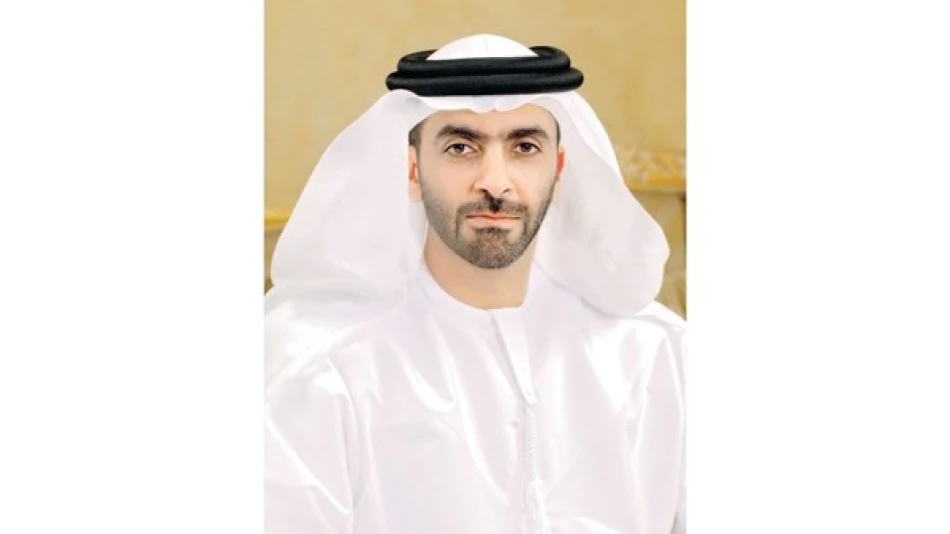
Sheikh Zayed's Son Appointed as Head of National Anti-Narcotics Agency
UAE Appoints New Anti-Narcotics Chief as Regional Drug Trade Intensifies
The United Arab Emirates has appointed Sheikh Zayed bin Hamad bin Hamdan Al Nahyan as the new head of the National Anti-Narcotics Authority, signaling the country's continued commitment to combating drug trafficking in a region increasingly targeted by international smuggling networks. The appointment comes as Gulf states face mounting pressure from synthetic drug flows and traditional narcotics routes shifting through the Middle East.
High-Level Endorsement Reflects Strategic Priority
Deputy Prime Minister and Interior Minister Sheikh Saif bin Zayed Al Nahyan publicly congratulated the new appointee via social media, describing the role as a "noble national mission." This high-level endorsement underscores how drug enforcement has become a cornerstone of UAE domestic policy, particularly as the country balances its position as a global trade hub with security concerns.
The Interior Minister's direct involvement in announcing this appointment reflects the UAE's integrated approach to security, where anti-narcotics efforts are closely coordinated with broader law enforcement and border control strategies.
Regional Context: Gulf States Under Pressure
The UAE's focus on anti-narcotics leadership comes amid a regional surge in drug trafficking activities. The Gulf has become a key transit point for Afghan opium, synthetic drugs from Asia, and increasingly sophisticated smuggling operations that exploit legitimate trade routes.
Captagon Crisis Spillover
While primarily associated with Syria and Lebanon, the Captagon trade has created enforcement challenges across the Gulf. UAE authorities have intercepted multiple large-scale shipments, indicating that international networks view the Emirates as both a transit point and potential market.
Port Security Challenges
As one of the world's busiest shipping hubs, Dubai's Jebel Ali Port processes millions of containers annually. This legitimate trade volume creates natural cover for smuggling operations, requiring sophisticated detection capabilities and international cooperation that the new leadership will need to enhance.
Institutional Strengthening Strategy
The appointment reflects the UAE's broader strategy of institutionalizing its security apparatus through specialized agencies. The National Anti-Narcotics Authority operates alongside other focused bodies like the Financial Intelligence Unit and cybersecurity agencies, creating a comprehensive approach to modern security challenges.
This institutional model mirrors successful approaches in Singapore and Hong Kong, where specialized agencies maintain operational independence while coordinating closely with traditional law enforcement. The UAE's version appears designed to handle both domestic consumption issues and international trafficking networks.
Economic and Social Implications
Effective drug enforcement directly supports the UAE's economic model, which depends on maintaining its reputation as a secure, reliable business environment. International companies and financial institutions increasingly factor security governance into their regional strategies, making anti-narcotics effectiveness a competitive advantage.
The appointment also reflects growing attention to domestic drug use, particularly synthetic substances among younger populations. This dual focus on trafficking and consumption represents a more comprehensive approach than purely border-focused strategies.
Regional Coordination Imperative
The new leadership will likely prioritize enhanced cooperation with Saudi Arabia, which has invested heavily in border security technology, and with international partners including European and Asian law enforcement agencies. The UAE's success in this area increasingly depends on intelligence sharing and coordinated operations that extend far beyond national borders.
This appointment positions the UAE to strengthen its role in regional security coordination while addressing the evolving challenges of modern drug trafficking networks that exploit legitimate trade infrastructure.
Most Viewed News

 Layla Al Mansoori
Layla Al Mansoori






